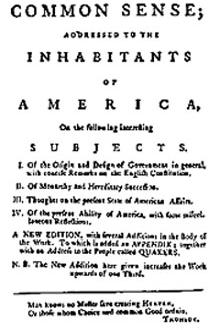Genre Philosophy. Page - 19
All entire books of the Philosophy genre on your device.

ypotheses are real facts with some of their circumstances exaggerated or omitted 2553. Some of the first principles of geometry are axioms, and these are not hypothetical 256 4. --but are experimental truths 258 5. An objection answered 261 6. Dr. Whewell's opinions on axioms examined 264 CHAPTER VI. The same Subject continued. Sec. 1. All deductive sciences are inductive 281 2. The propositions of the science of number are not verbal, but generalizations from experience 284 3. In what sense

object that causeth them, but so many several motions of the matter, by which it presseth our organs diversly. Neither in us that are pressed, are they anything els, but divers motions; (for motion, produceth nothing but motion.) But their apparence to us is Fancy, the same waking, that dreaming. And as pressing, rubbing, or striking the Eye, makes us fancy a light; and pressing the Eare, produceth a dinne; so do the bodies also we see, or hear, produce the same by their strong, though

age to the door of her private retreat, and was about to knock when he was deterred by the words which he could clearly hear. Chapter III FRANCIS HAMMERTON, if we are to think of him by his true name, had not considered the probability that Mrs. Benson might not be the sole occupant of the house, his mind having been concentrated upon aspects of his position which threatened more definite hazards. Actually, the woman whose voice he heard was a next-door neighbour, Miss Janet Brown, who had

of the slaves, or to march to Mexico--see if I would go"; and yet these very men have each, directly by their allegiance, and so indirectly, at least, by their money, furnished a substitute. The soldier is applauded who refuses to serve in an unjust war by those who do not refuse to sustain the unjust government which makes the war; is applauded by those whose own act and authority he disregards and sets at naught; as if the state were penitent to that degree that it hired one to scourge

eth headlong. Sa'dí. 43. A man who has learnt little grows old like an ox: his flesh grows, but his knowledge does not grow. Dhammapada. 44. Unsullied poverty is always happy, while impure wealth brings with it many sorrows. Chinese. 45. Both white and black acknowledge women's sway, So much the better and the wiser too, Deeming it most convenient to obey, Or possibly they might their folly rue.[6] Persian. [6] Cf. Pope: Would men but follow what the sex advise, All things would prosper, all

by the combination, they have an undoubted privilege to inquire into the pretensions of both, and equally to reject the usurpations of either.In the following sheets, the author hath studiously avoided every thing which is personal among ourselves. Compliments as well as censure to individuals make no part thereof. The wise, and the worthy, need not the triumph of a pamphlet; and those whose sentiments are injudicious, or unfriendly, will cease of themselves unless too much pains are bestowed

fully exhausted in the Critique, it is necessary that, in the proposed work, the same should be the case with their analysis. But this will be rather an amusement than a labour.[*Footnote: In contradistinction to the Metaphysic of Ethics. This work was never published.] PREFACE TO THE SECOND EDITION, 1787 Whether the treatment of that portion of our knowledge which lies within the province of pure reason advances with that undeviating certainty which characterizes the progress of science, we

development. A few easily-mastered principles which give you the key to the whole of this wonderful subject.LESSON XVII PERSONAL PSYCHIC INFLUENCE OVER OTHERS Psychic Influence exerted over others, when in their presence. Different degrees of the influence. Possession of this power by Alexander the Great, Napoleon Bonaparte, Julius Caesar, and other great leaders of men. The ability to influence others is a sure sign of the possession of this psychic power. The Three Underlying Principles of

calling. He was working as atailor's apprentice near Bonchurch, in the Isle of Wight, when thenews flew through the village that a squadron of men-of-war wassailing off the island. He sprang from the shopboard, and ran downwith his comrades to the beach, to gaze upon the glorious sight.The boy was suddenly inflamed with the ambition to be a sailor; andspringing into a boat, he rowed off to the squadron, gained theadmiral's ship, and was accepted as a volunteer. Years after, hereturned to his
